This is my super creamy and delicious, authentic masala chai, infused with saffron and ginger (amongst many other spices). This is my traditional mother’s recipe and therefore a real desi chai that can pick you up in the mornings or afternoons.
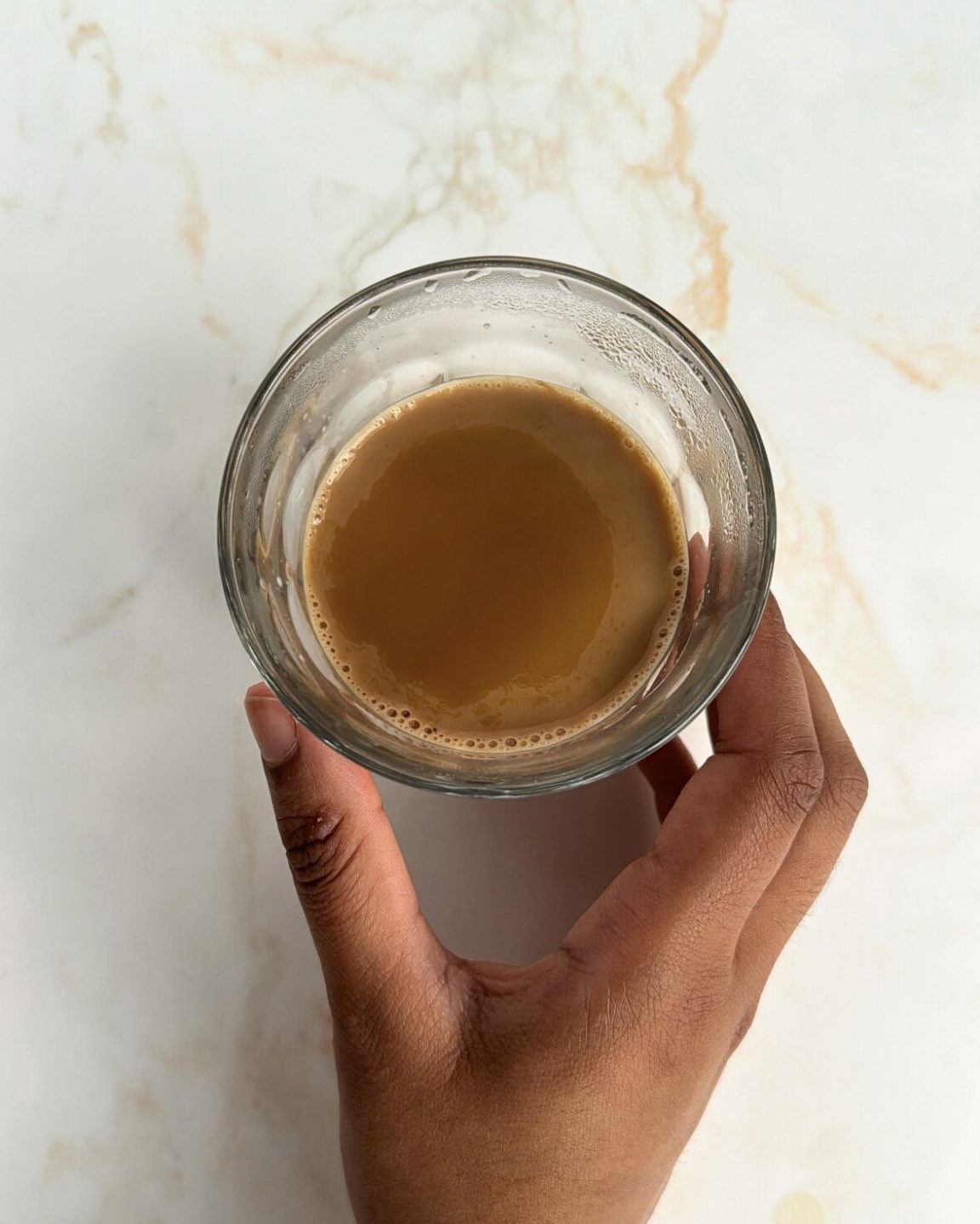
Why this recipe is a star?
- Authentic Indian Masala Chai: As mentioned, this is my mothers recipe, that was passed down through generations and has now ended up in my recipe collection! Making various different chais (check out my karak chai or iced chai), is one of my favourite things to do and I always find myself returning to this classic version. So make this, if you want an authentic chai recipe.
- Easy to follow: Most people think that traditional masala chai is a super complicated, mystic thing that only the chai walas and their magic fingers can produce, but honestly, it’s not and this recipe is super easy and simple to follow.
What is Indian masala chai?
So the Hindi translation of ‘Masala’ to English, is simply ‘spices’ and the Hindi translation of ‘chai’ is ‘tea’. So, masala chai is literally just an Indian spiced tea.
If you are scared of spice in your tea, don’t worry at all because the masala, in masala tea, is very subtle. Other than drinking it day to day, it is a super popular staple in my household for cold and rainy days, which is a very regular occurrence if you live in the UK (even in the summer!).
The origin of how masala chai came about is so interesting and honestly, I could probably talk to you for hours about it.
To save you the long history, in a nutshell, masala chai came about after the economic crash in the 1930’s which forced the British to open up the tea market to a wider Indian population (other than the maharajas and English, who used to drink it in their fancy clubs).
The wider Indian population figured it was pretty bland on its own and so started adding a bunch of masala, and that is how, masala chai was born.
Masala chai vs Chai?
Note that masala chai and chai are basically the same thing.
Tea is consumed like this (or different versions of it) across the Indian sub-continent and so this is our standard ‘tea’ recipe.
When my auntie offers me tea in India, she just asks me if I want a chai, not if I want a masala chai. It will have some sort of masala in it, by default.
Differentiations occur if you’re looking at karak chai or pink Kashmiri chai recipes, those types of recipes draw inspiration from masala chai but are different.
In the West though, ‘chai’ or ‘masala chai’ is used to refer to the Indian drink and by contrast if you offer someone a ‘tea’, then instead it is an offer of your classic breakfast teas or herbal teas.
Ingredients for masala chai?
Masala chai spice mix ingredients
- Black peppercorns – This is going to add that very subtle but lovely heat to the chai mix. I would suggest that this is an essential ingredient to the masala chai as none of the ingredients below (other than the clove) will work for the heat element.
- Cardamom – An essential ingredient for any cup of chai. Some masala chai recipes really hone in on this element to their chai and I don’t blame them as it adds such a subtle but delicious sweetness.
- Cinnamon – I would also argue that this is super essential as well as its going add super warming notes to your chai.
- Ginger – Again, this is essential and on par with the black pepper in terms of important additions to this recipe. I use about a small chunk of ginger, grinded up. I would suggest this amount as it still keeps the ginger notes, super delicate.
- Cloves – I am not the biggest fan of cloves, but in my masala chai, it is absolutely a great addition. It works well with the black pepper to add the heat element to the chai.
- Saffron – This is optional but, I absolutely love adding saffron to any variation of my chai. So, if you have it to hand, add it!
- Fennel – I would say this is optional. My mother always has this in her pantry so it is a nice addition, if you have it to hand. Again, this is subtle but fennel has great health benefits so infusing this in your tea is a great idea.
- Bayleaf – This is also optional and also a situation where my mum has this in abundance in her pantry so it didn’t make sense to leave it out. However, just note that the more spices and herbs you add, the better and more flavourful your masala chai is going to be.
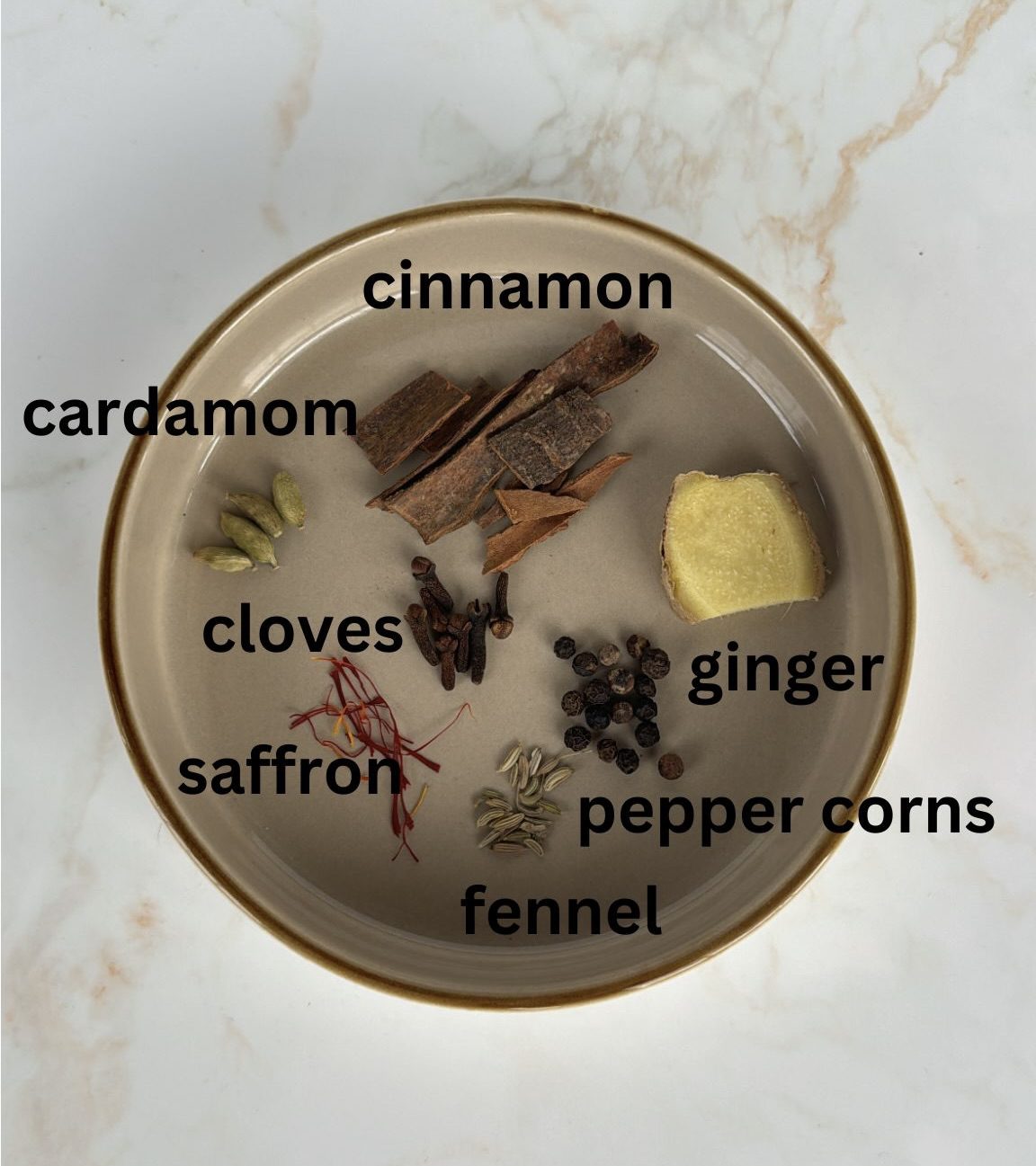
Rest of the masala chai ingredients?
- Water – Around two cups.
- Black tea – I highly recommend investing in a really good loose leaf black tea. I use an Assam loose leaf black tea, which is strong, bold and malty in flavour.
- Preferred milk of your choice – I actually use both dairy and non-dairy (oat milk is usually best) for this recipe.
- For sweetness – Some of the options you can use are brown sugar, regular sugar and condensed milk. I usually make this for my family who all have very different sweetness preferences so I don’t usually sweeten the tea while still in the saucepan.
Note that other recipes may also call for the addition of star anise, cumin, corriander seeds and nutmeg.
I didn’t have some of the above to hand, but would have included the star aniese particularly if I had it to hand.
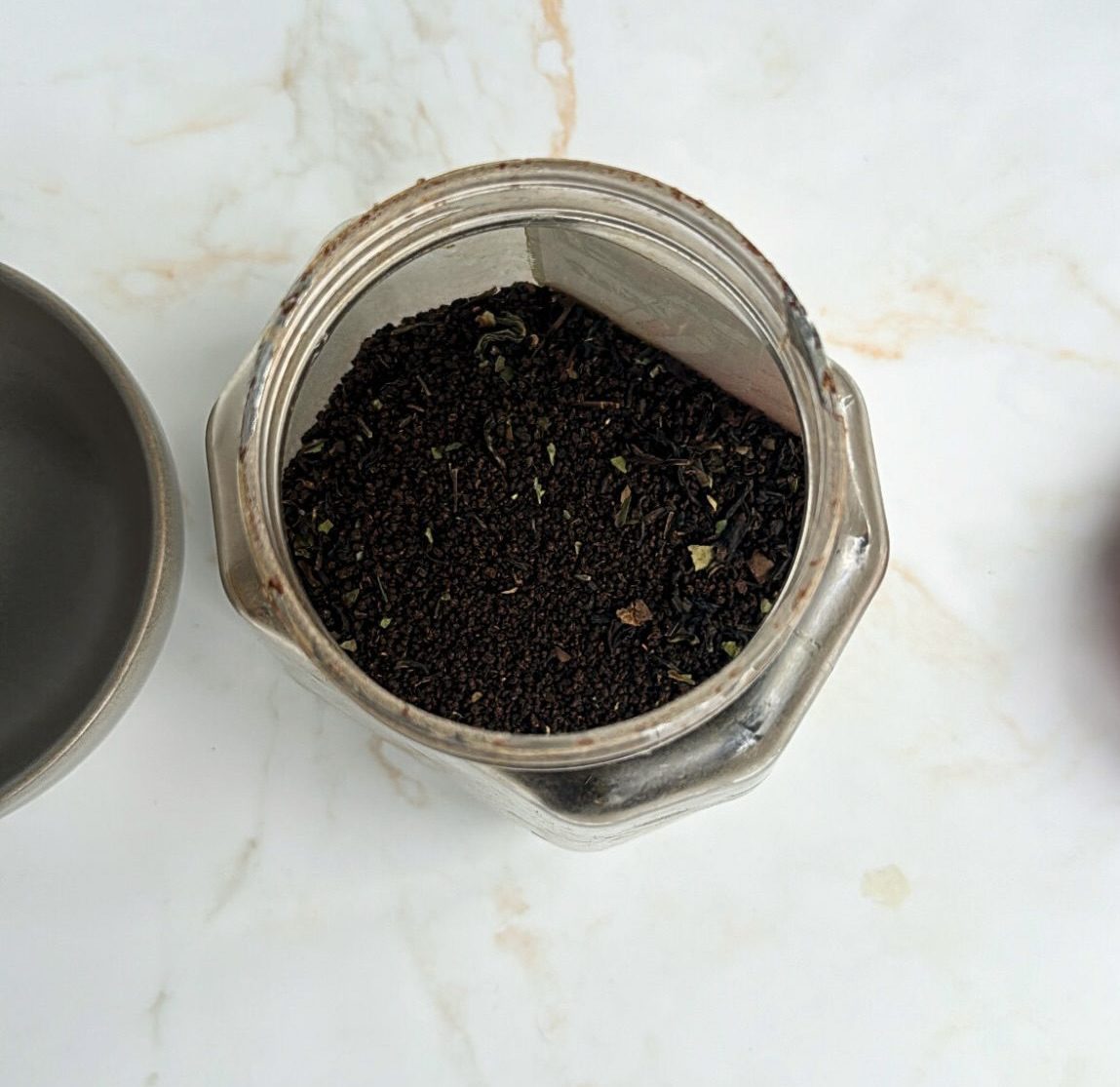
Variations and Substitutions?
- The beauty of masala chai is that, you can literally mix and match out these ingredients and it will still be a winner. For example, if I wanted a bit more heat in my chai then I could have also added cumin for sharper spice notes.
- You can also go really heavy on some ingredients. For example, if you are a fan of ginger, add more. Pro-tip, if you’re feeling under the weather, a ginger indian masala chai is going to be your best friend.
How to serve this indian masala chai?
You can serve it in a classic chai glass cup. There is also no need for you to be extra though, so you can also have it in your most treasured mug.
Expert tips?
- Infusing your water: When you add your water to the saucepan, please ensure it’s cold water. This is going to allow the water to heat up, with the spices, making the whole infusion process so much better
- Boiling your tea: After you have added your spices, black tea and milk you want to turn the heat all of the way up, until the mixture is boiling and almost at the top of the saucepan and then take the heat all of the way down. This is going to strengthen the flavours super nicely.
- Colour of your tea: Right, the colour of your chai should be a nice brown caramel. For me, the super milky chai’s don’t cut it. I usually drink a chai when my afternoon slump is about to kick in, so I usually need something strong. You’ll achieve this colour by ensuring you boil the tea well and using the right amount of tea leaves (two teaspoons in this recipe).
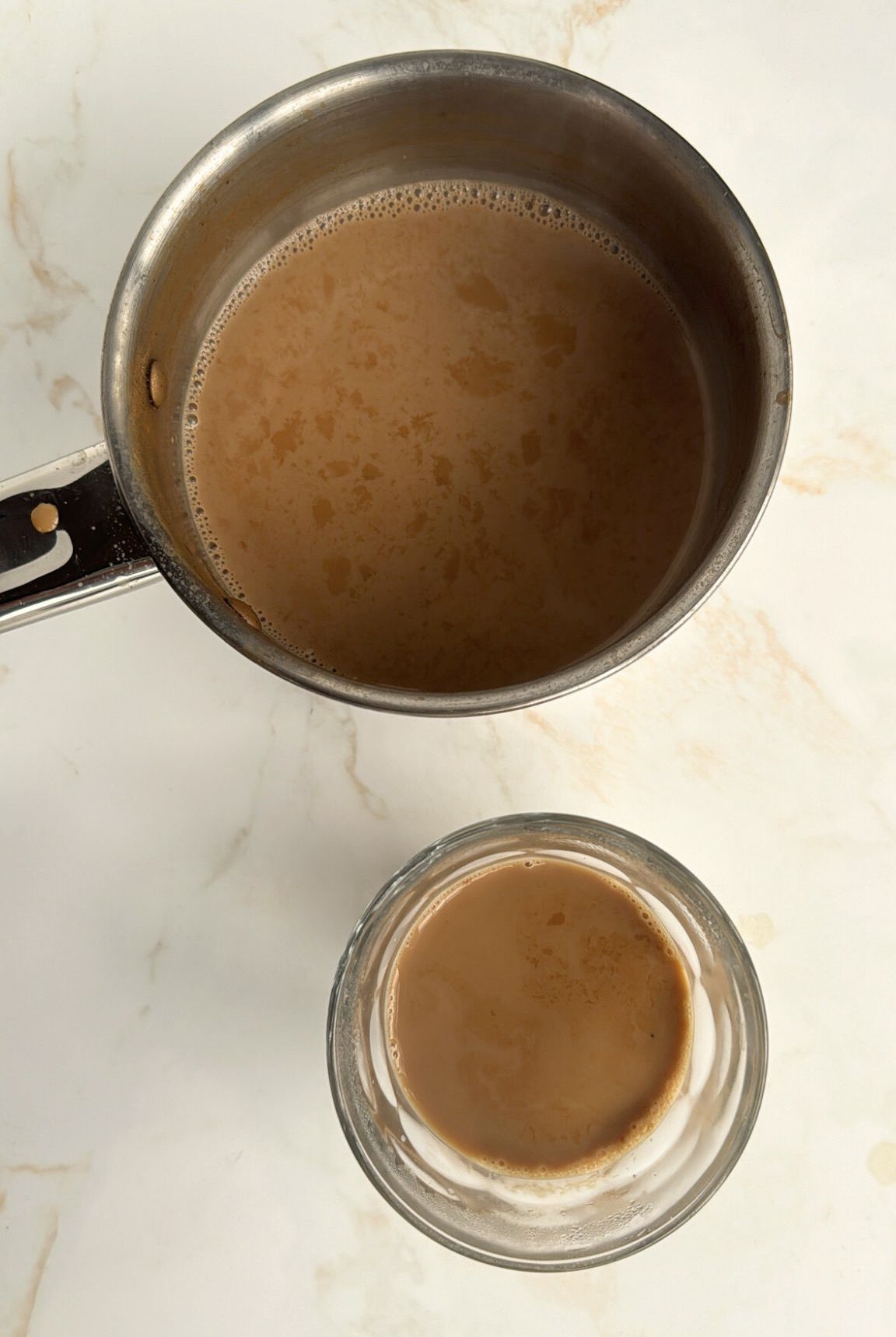
FAQ's
Drink it like how you would enjoy any tea, but if you want something on the side a samosa, pakora or aubergine bhaja would be great options.
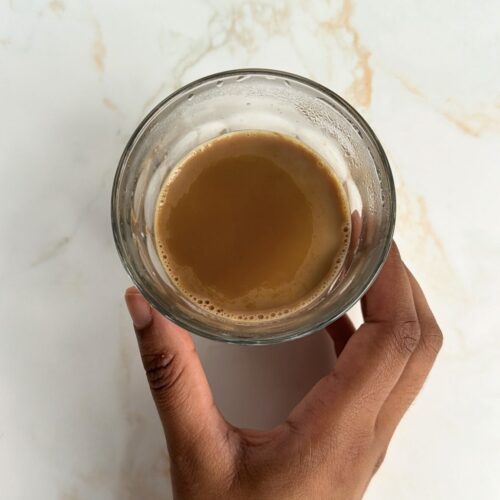
Authentic Indian Masala Chai (Tea) (Saffron And Ginger)
Equipment
- 1 saucepan small or large depending on how much chai you are using
- 1 mortar and pestle
Ingredients
- 2 cups water
- 1 cup milk Dairy or non dairy and if you are going with non dairy, I would highly reccomend oat milk.
- 1 peel giner
- 5/6 corns black pepper corns
- 3/4 strands of saffron
- 2/3 cloves
- 1 bay leaf
- 3/4 seeds fennel
- 2/3 barks cinnamon I had small barks to hand, but if you have larger ones, then using half of one large one should be fine.
- 2/3 pods cardamom
- 1 cube sugar for each individual cup. You could also sweeten with honey, syrup or condensed milk too.
- 2 tsp black loose leaf tea
Instructions
- Gather all of your spices together and grind them up. You will be able to grind everything up, other than the bayleaf and saffron.
- In a saucepan, place in two cups of cold water with all of your ground spices and the bay leaf and saffron. Put that on medium to low heat, until it starts simmering.
- Once it begins simmering you know the spices have been infused accordingly and you can now add your loose leaf tea or teabags.
- Let that simmer together for around 5 minutes or so, or according to your strenght preference.
- Add in your preferred amount of milk. I used roughly one cup. Bring that to a boil, and just as it reaches the top of the saucepan, take the heat all the way down and repeat this process until you get to your preferred strenght.
- Strain the tea out into a bowl or your preferred mug or teapot and serve with a snack, or enjoy on its own!

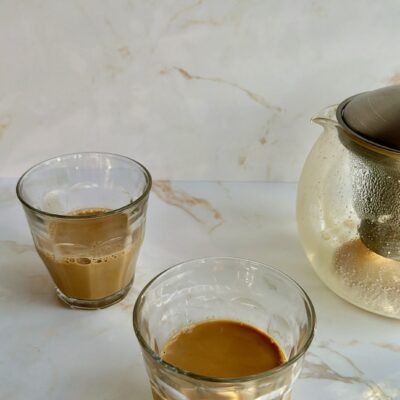
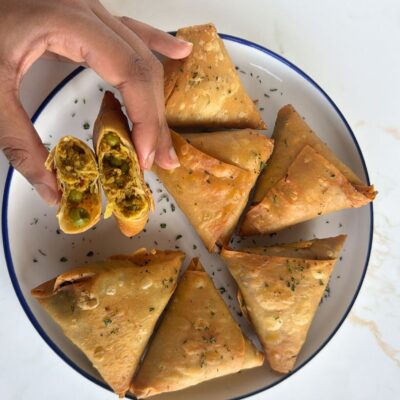
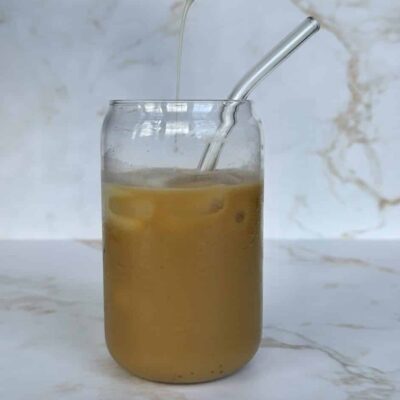

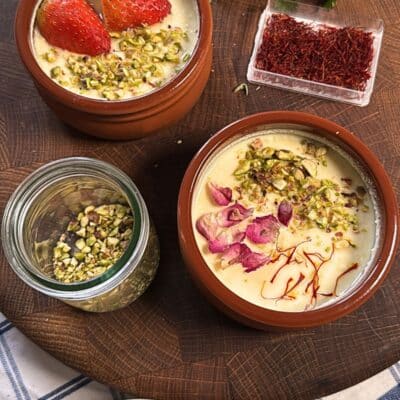
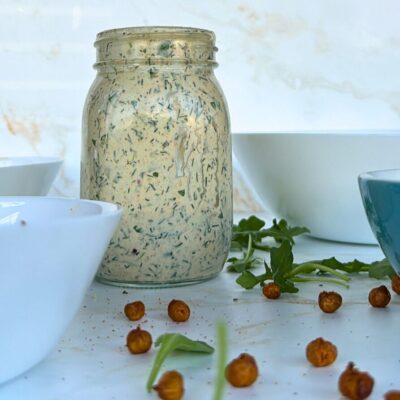
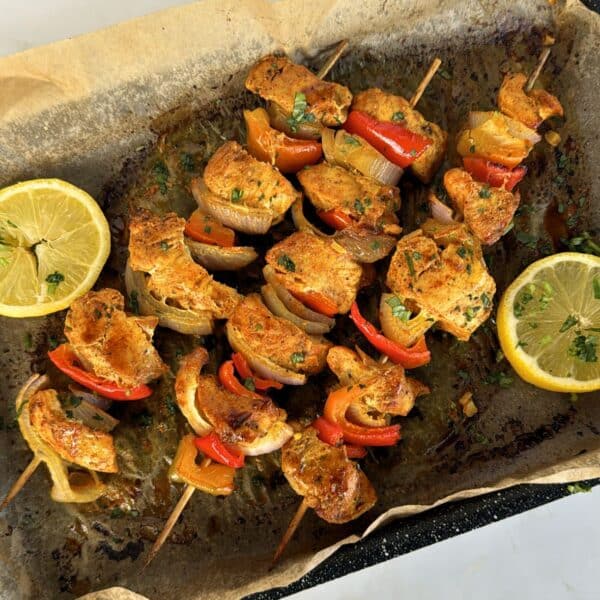

Comments
Your e-mail will not be published and required fields are marked *